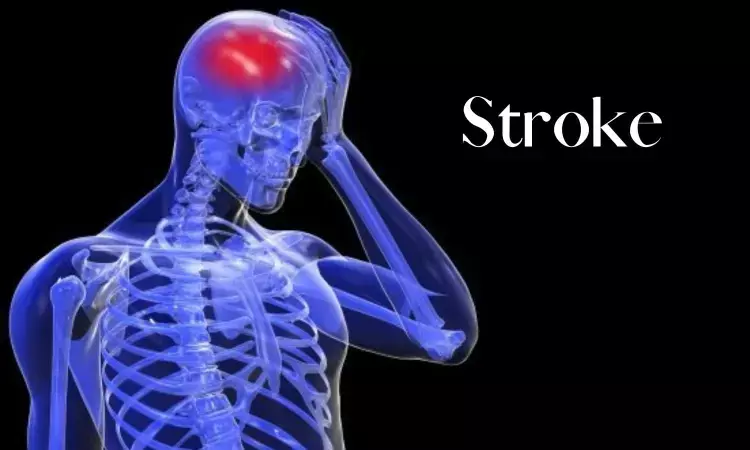- Home
- Medical news & Guidelines
- Anesthesiology
- Cardiology and CTVS
- Critical Care
- Dentistry
- Dermatology
- Diabetes and Endocrinology
- ENT
- Gastroenterology
- Medicine
- Nephrology
- Neurology
- Obstretics-Gynaecology
- Oncology
- Ophthalmology
- Orthopaedics
- Pediatrics-Neonatology
- Psychiatry
- Pulmonology
- Radiology
- Surgery
- Urology
- Laboratory Medicine
- Diet
- Nursing
- Paramedical
- Physiotherapy
- Health news
- Fact Check
- Bone Health Fact Check
- Brain Health Fact Check
- Cancer Related Fact Check
- Child Care Fact Check
- Dental and oral health fact check
- Diabetes and metabolic health fact check
- Diet and Nutrition Fact Check
- Eye and ENT Care Fact Check
- Fitness fact check
- Gut health fact check
- Heart health fact check
- Kidney health fact check
- Medical education fact check
- Men's health fact check
- Respiratory fact check
- Skin and hair care fact check
- Vaccine and Immunization fact check
- Women's health fact check
- AYUSH
- State News
- Andaman and Nicobar Islands
- Andhra Pradesh
- Arunachal Pradesh
- Assam
- Bihar
- Chandigarh
- Chattisgarh
- Dadra and Nagar Haveli
- Daman and Diu
- Delhi
- Goa
- Gujarat
- Haryana
- Himachal Pradesh
- Jammu & Kashmir
- Jharkhand
- Karnataka
- Kerala
- Ladakh
- Lakshadweep
- Madhya Pradesh
- Maharashtra
- Manipur
- Meghalaya
- Mizoram
- Nagaland
- Odisha
- Puducherry
- Punjab
- Rajasthan
- Sikkim
- Tamil Nadu
- Telangana
- Tripura
- Uttar Pradesh
- Uttrakhand
- West Bengal
- Medical Education
- Industry
Lightheadedness or dizziness may be symptom of AF, cardiomyopathy or stroke

According to the American Stroke Association, lightheadedness or dizziness may be a symptom of atrial fibrillation, cardiomyopathy or some types of stroke.
Sen. John Fetterman, who had a stroke late last year on the campaign trail, was treated overnight at a Washington, DC, hospital after feeling lightheaded. According to a statement from his office, initial tests did not show evidence of a new stroke.
“Lightheadedness, dizziness or issues with balance may be reported by some stroke survivors,” said Mitchell S. V. Elkind, M.D., MS, FAHA, FAAN, a neurologist and the American Heart Association’s chief clinical science officer. “Feeling lightheaded may also be one symptom of atrial fibrillation (AF or AFib), the most common type of heart arrhythmia, and cardiomyopathy, a condition that makes it harder for the heart to pump blood to the rest of the body.”
Last fall, Senator Fetterman shared that he was diagnosed with both atrial fibrillation and cardiomyopathy. Both are conditions which may cause a stroke and can be effectively treated - yet require ongoing monitoring, said Elkind.
As Dr. Elkind, who is also a professor of neurology and epidemiology at Columbia University Vagelos College of Physicians and Surgeons in New York City, explained, “A lack of adequate blood flow may cause people to experience dizzy spells or feel lightheaded. Either AFib or cardiomyopathy may occasionally limit the blood flow to the brain. While it’s treatable, it may be a signal that medications need to be modified or additional interventions are needed. Lightheadedness is common, however, and can also be a symptom of dehydration, a viral infection or other minor problems. It’s always a good idea to report any symptoms to your doctor and seek immediate attention, if symptoms are severe or sudden.” Elkind shared his thoughts during the annual International Stroke Conference, the world premier meeting for researchers and clinicians dedicated to the science of stroke and brain health since 1976, taking place this week in Dallas.
According to the American Stroke Association, a division of the American Heart Association, which is devoted to world of healthier lives for all, is the No. 5 cause of death and a leading cause of disability in the United States.
Stroke can happen to anyone-any age, any time-and everyone needs to know the warning signs. Calling 911 lets first responders start treatment on someone experiencing stroke symptoms before arriving at the hospital. Use the letters in F.A.S.T to spot a Stroke:
• F = Face Drooping
• A = Arm Weakness
• S = Speech Difficulty
• T = Time to call 911
Beyond F.A.S.T. – other symptoms you should know
• Sudden NUMBNESS or weakness of face, arm, or leg, especially on one side of the body
• Sudden CONFUSION, trouble speaking or understanding speech
• Sudden TROUBLE SEEING in one or both eyes
• Sudden TROUBLE WALKING, dizziness, loss of balance or coordination
• Sudden SEVERE HEADACHE with no known cause
Dr Kamal Kant Kohli-MBBS, DTCD- a chest specialist with more than 30 years of practice and a flair for writing clinical articles, Dr Kamal Kant Kohli joined Medical Dialogues as a Chief Editor of Medical News. Besides writing articles, as an editor, he proofreads and verifies all the medical content published on Medical Dialogues including those coming from journals, studies,medical conferences,guidelines etc. Email: drkohli@medicaldialogues.in. Contact no. 011-43720751


